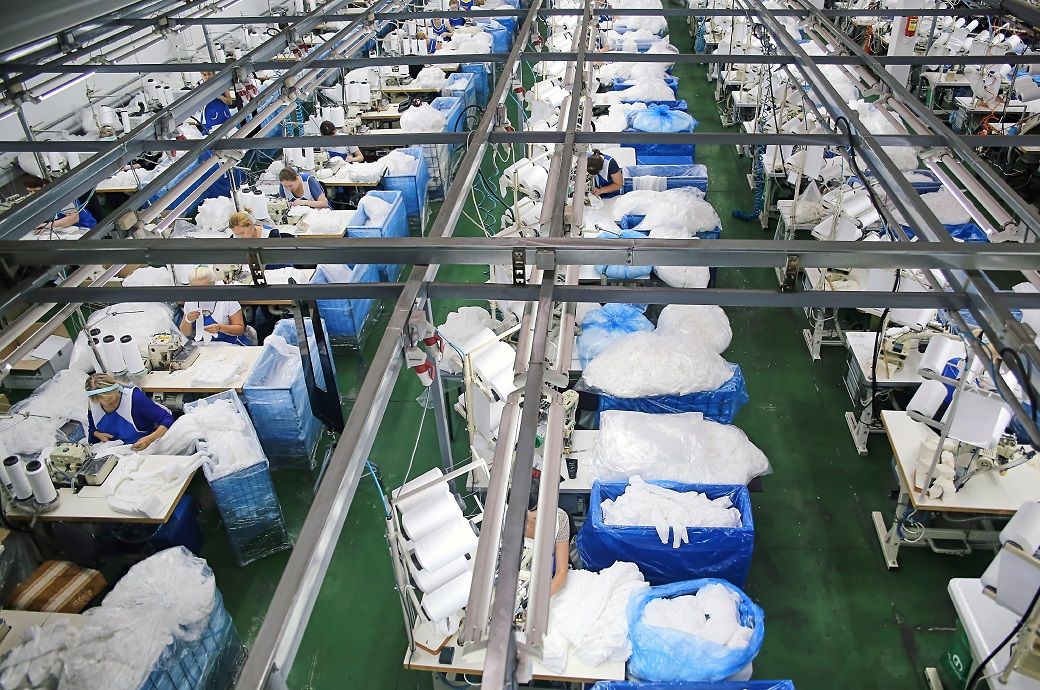
Business confidence jumped higher to hint at markedly improving prospects for the year ahead, with order books meanwhile showing reduced rates of contraction. Employment growth also picked up momentum as firms prepared for a better than previously expected year ahead.
Input cost inflation meanwhile cooled further thanks to alleviating supply chain stress, but average selling price inflation for both goods and services ticked higher, reflecting still-elevated cost growth and upward wage pressures. Manufacturing output contracted only modestly (the index up from 47.8 to 49.0), registering the smallest drop in factory production since last June.
Within the euro area, Germany reported only a marginal drop in output, the composite PMI rising from 49.0 in December to 49.7, its highest since output began falling last July. While manufacturing output continued to fall at a rate unchanged in December, the decline remained far less marked than recorded last autumn.
Output meanwhile fell for a third successive month in France, the composite index slipping from 49.1 to 49.0 to indicate a marginal steepening in the rate of decline. Output meanwhile returned to growth across the rest of the eurozone as a whole after four months of decline.
The marginal return to growth of output across the eurozone as a whole was accompanied by a sharp improvement in optimism about the year ahead. January saw the largest monthly increase in the eurozone PMI composite business expectations index since June 2020, building on gains seen in the prior three months to push confidence to its highest since last May.
Sentiment improved in both manufacturing and services, rising across France, Germany, and the rest of the eurozone as a whole. Some encouraging news regarding near-term prospects was also provided by the survey data on order books. Although new orders fell for a seventh straight month, the decline was the smallest recorded over this period. New orders for manufactured goods decreased at the slowest rate since last May, albeit still declining sharply.
Similarly, although backlogs of orders continued to fall—dropping for a seventh straight month—the decline was the shallowest since last October. Companies met this brightening of business prospects and moderating decline in demand with additional hiring.
Factories meanwhile reported unchanged supplier delivery times for a second successive month, contrasting with the deteriorating supply picture seen over the prior three years. Delivery times notably improved for a third straight month in Germany (though worsened in France). Supply chain stress has eased in part due to falling demand for inputs, which declined steeply again in January (though to a lesser degree than in each of the prior three months), which in turn is linked to a developing shift away from inventory building to inventory reduction. Both stocks of factory inputs and finished goods fell in January, dropping for the first times in 16 and eight months respectively.
The easing of supply chain pressure helped alleviate input cost inflation, as did the calming of energy markets, especially in manufacturing. Measured overall, input prices rose in January at the slowest rate since April 2021—albeit still running well above the survey’s pre-pandemic long-run average.
However, manufacturing input cost inflation has now fallen below its pre-pandemic average, down to its lowest since October 2020. While in both sectors the rates of increase remained off recent peaks, the sustained upward pressure on selling prices in part reflected efforts to rebuild margins, notably in the face of historically high energy and other raw material costs, as well as growing staff costs.
The Eurozone PMI is produced by S&P Global and is based on original survey data collected from a representative panel of around 5,000 companies based in the euro area manufacturing and service sectors.
“A case for policy caution is supported by the survey merely indicating a stagnation of the eurozone economy, hinting that a renewed slide into contraction should not be ruled out as borrowing costs rise, but the survey undoubtedly brings welcome good news to suggest that any downturn is likely to be far less severe than previously feared and that a recession may well be avoided altogether,” said Chris Williamson, chief business economist at S&P Global Market Intelligence.
ALCHEMPro News Desk (NB)
Receive daily prices and market insights straight to your inbox. Subscribe to AlchemPro Weekly!